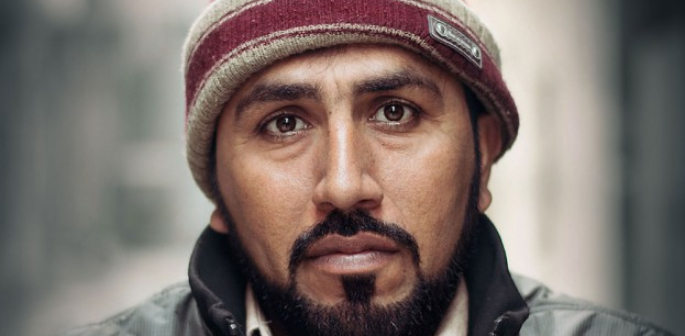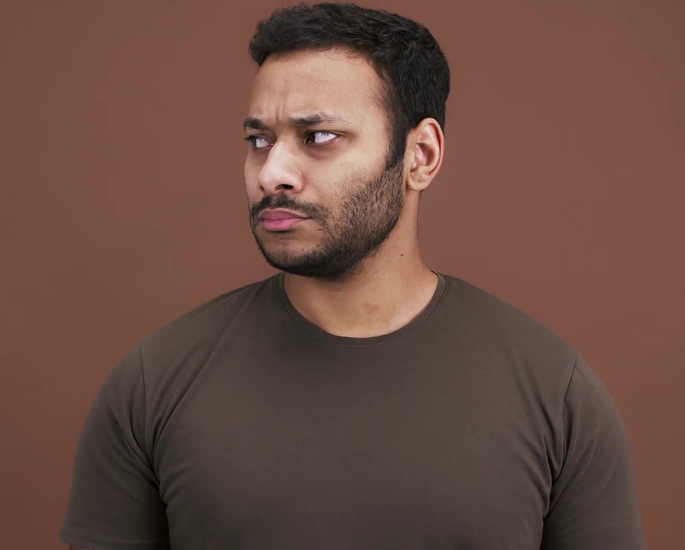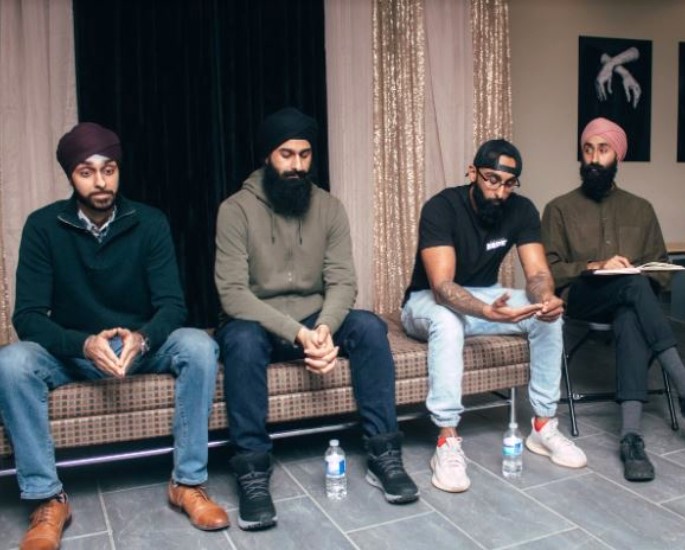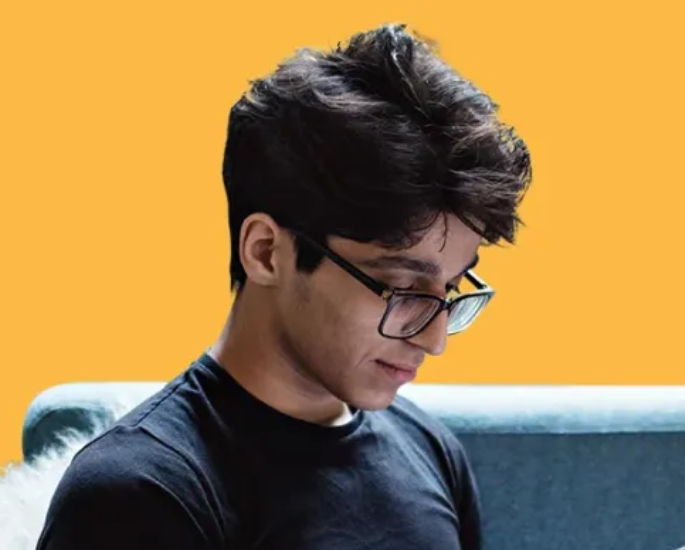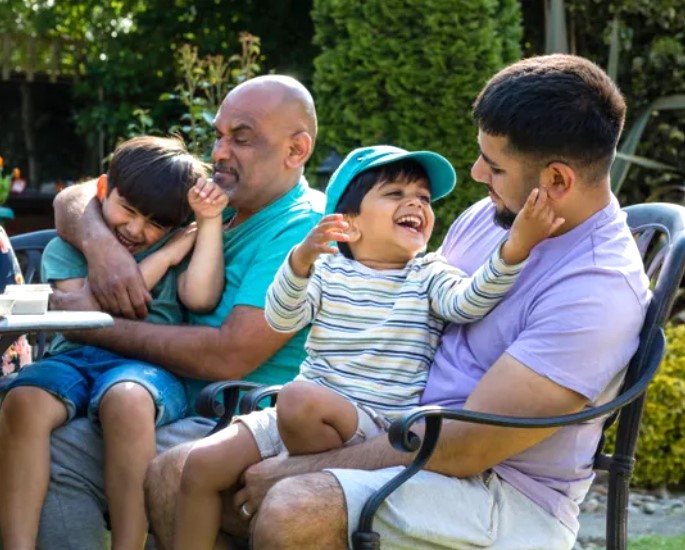"In the UK alone, 75% of lives lost by suicide are male"
As the world becomes more open to discussing mental health, there’s a positive shift happening.
People are increasingly comfortable sharing their mental health journeys with friends, family, and even at work.
But not all communities are moving forward at the same pace.
Some still grapple with deeply rooted taboos and misconceptions surrounding mental health.
In South Asian communities, this is particularly challenging. A strong issue persists against discussing mental health openly.
Elders and respected figures within these communities may dismiss mental health issues as being “all in your head”.
This implies that positive thinking and sheer determination should suffice to overcome any challenges.
But, whilst these problems persist, it’s an even bigger challenge for South Asian men.
Many men suffer from traditionalist ideas of being the ‘breadwinner’ or being tough.
So, for them to look for support, whether it’s emotionally or physically, is seen as a weakness.
This leads to many consequences such as violent outbursts, drug abuse, alcoholism, and even suicide.
In order for South Asian men to grapple with their mental health we uncover the reasons behind why it’s a stigma for them to talk about their thoughts/feelings in the first place.
Likewise, exploring the issues to address within the culture is also important.
By targeting specific avenues, a safer and more knowledgeable environment can be created to speak openly about mental health issues in this diaspora.
South Asians and Struggling to Talk
Mental health has long been shrouded in stigma, making it a subject that’s often whispered about or kept concealed.
This hushed approach, driven by a sense of shame and embarrassment, has deterred many from addressing their mental well-being, particularly in certain communities.
But why is this the case?
Mental health holds the same significance as physical health.
Just because it isn’t visible to the naked eye doesn’t diminish its importance.
Improvement in mental health typically requires discussion and proactive measures.
However, many South Asian individuals feel constrained, and unable to speak openly about their thoughts.
For those in marginalised communities, admitting mental health challenges can be daunting.
The fear of being labelled as weak, broken, or different often silences their struggles.
In cultures where mental health remains a taboo topic, many people find themselves unable to articulate what they’re going through, assuming no one else can relate because they’ve rarely heard such discussions.
Mental health struggles affect nearly everyone, to varying degrees.
Yet, older generations often refused to seek professional help, perpetuating generational trauma.
This kind of trauma spans multiple generations, passing down learned behaviours and coping mechanisms, even unhealthy ones.
As licensed clinical psychologist Melanie English points out:
“Generational trauma can be silent, covert, and undefined, surfacing through nuances and inadvertently taught or implied throughout someone’s life from an early age onward.”
Confronting one’s inherent reluctance to seek mental health care can be an immense challenge for those grappling with conditions like depression and anxiety.
The stigma associated with seeking help often looms large, with older generations sometimes downplaying these challenges and advocating for individuals to simply power through.
As a result, even younger individuals who may have begun to shift away from this ingrained bias can still find themselves hesitant to seek treatment or adhere to a shared treatment plan.
The Focus on South Asian Men
South Asian men are typically guided towards achieving material success, but they often receive minimal guidance on managing their emotions and navigating relationships.
Concepts like empathy and self-awareness are not always part of the equation, which can lead to cultural conflicts.
Dr Vasudev Dixit, a mental health professional states:
“The basis for success is often areas of generational and cultural difference.
“This can leave family members, and fathers in particular, frustrated and lacking in skills to navigate this.”
Furthermore, systemic racism and discrimination have left a profound impact on the South Asian diaspora.
According to Dr. Miraj Desai, an assistant professor at the Yale Program for Recovery and Community Health:
“Being and feeling invisible regularly deprives people of nourishment, warmth, and just basic human recognition.
“I don’t think people realise how much this has impacted the Desi community in this country.
“Further, post-9/11 racism and racial profiling did a lot of harm to this community, much of which has not fully healed, as it lives on to this day.
“This issue cuts a specific way with South Asian men, who often were and are the targets of suspicion and scorn.”
Regrettably, South Asian men are often conditioned to bear these burdens silently.
They seldom have the opportunity to express “weakness” or sadness, and seeking help is not something they readily embrace.
These patterns of behaviour can be traced back through generations.
The evolving cultural landscape presents a significant challenge for those balancing two worlds: their mainstream culture and their familial culture.
In his own practice, Ankur Varma, who works specifically with South Asian men, observes a growing number of men assuming larger roles as stay-at-home caregivers.
This highlights the changing ideologies that challenge the stereotype of caregiving as a source of shame for men.
It’s a move towards more balanced gender roles, fostering healthier partnerships as he says:
“For bicultural men, traditional expectations include being the main financial provider for the family, remaining ‘strong’ emotionally, and making the family proud.
“These factors, along with the need to blend into Western culture, can create incongruence in our identity process.”
As outlined, the pressure to achieve the goals of parents, grandparents etc leads many men to have a “get on with it” attitude.
The lack of openness leads to things like internalised hatred, violent outbursts, alcoholism and drug abuse.
There is a big drinking culture in some parts of the South Asian diaspora, so a lack of mental health support can lead to excessive drinking as a coping mechanism.
Numerous individuals turn to alcohol as a form of self-medication for diverse mental health issues.
It may provide a temporary respite from symptoms of anxiety or make them appear more manageable.
Regrettably, alcohol consumption can also heighten the likelihood of depression and worsen the manifestation of various mental health disorders.
What do the Professionals Say?
Whilst the reasons as to why mental health is such a sticky subject among South Asian men are important, hearing from professionals is also vital.
Their opinions and views can help shed light on how important it is to address South Asian men’s mental health.
Dr Umesh Joshi, a psychologist from London and part of a group known as the South Asian Therapists says:
“All too often, we hear about men ending their lives, and when it’s a South Asian man, it hurts differently.
“I can’t help but think about the experiences men from marginalised groups experience, such as racism, microaggressions, being subjected to and learning unhelpful ways of coping and suppressing feelings.”
Raj Kaur established the South Asian Therapists global directory and an Instagram page to offer a culturally inclusive platform for community members to access support. She states:
“It’s difficult enough for South Asians to get treatment in a system already based on white bias in medicine and diagnostics.
“But stigma within families and the community makes it harder still for South Asians to get support.
“De-stigmatising mental health and improving access need to go hand in hand.”
Ishtiaq Ahmed, Strategic Service Director of the mental health charity, Sharing Voices, explains:
“Mental health is a topic that is often seen as taboo within the South Asian community in the UK.
“A culture of shame is all too familiar for many South Asians suffering in silence with mental health problems.
“In the UK alone, 75% of lives lost by suicide are male, according to the Campaign Against Living Miserably (CALM).
“Conversations around suicide and male mental health in the South Asian community are still far and few between.
“Recent studies have shown that South Asian immigrants are experiencing high rates of mental health disorders, which often go unaddressed.
“In one UK study, middle-aged Pakistani men reported significantly higher rates of depression and anxiety compared to similarly aged whites.”
He pointed out that one of the root causes is structural racism, which fundamentally contributes to ethnic health disparities.
Extensive research spanning several decades has unequivocally demonstrated that all forms of racism, particularly structural racism, play a pivotal role in shaping health disparities.
What Needs to be Addressed?
In certain South Asian communities, there’s a prevailing belief among parents and older generations that mental health symptoms result from the family’s inability to make an individual happy.
This is often viewed as a breach of familial duty, leading families to assume personal responsibility for the individual’s mental well-being.
However, this approach can give rise to critical issues.
Primarily, it can lead to a failure to address the root causes and challenges underlying the mental health condition.
Additionally, it places immense pressure on the family to “fix” the individual’s mental health, even though they may not have the capacity to provide the necessary support.
Therefore, addressing the underlying causes of symptoms is imperative.
Additionally, there needs to be strict importance on hereditary challenges as mental illness often has a hereditary component.
While having a family member with a mental health condition doesn’t guarantee that others will develop it, it can heighten the likelihood.
Children born to parents with specific mental health conditions may face an increased risk of experiencing similar symptoms themselves.
However, in South Asian families, these conditions often go unaddressed.
Parents who have conditions like ADD or ADHD may not recognise their symptoms and, consequently, continue to grapple with them throughout their lives.
Regrettably, this could lead to a situation where when children begin to display signs of ADD or ADHD, parents may simply expect them to handle these symptoms independently.
Parents may also perceive these mental health symptoms as “normal” or believe that “everyone goes through them”.
This misconception can be especially prevalent in cases of hereditary mental illnesses, where multiple family members may exhibit similar general symptoms.
It’s also no secret that there is a lack of cultural-based treatment.
For example, mental health treatment in the United States sometimes overlooks the distinctive cultural requirements of South Asians.
Despite the best intentions of clinical psychologists and psychiatrists, a lack of understanding of South Asian culture can hinder their ability to offer top-quality care.
Consequently, South Asian individuals may encounter difficulties in locating care providers who genuinely grasp and address their unique treatment needs.
Likewise, the resistance to treatment is a big problem among South Asian men, but also within South Asian cultures generally.
In some instances, even when a mental health condition is recognised, individuals within South Asian communities may exhibit a collective resistance to seeking treatment.
South Asian parents, for instance, might hesitate to seek help for their children, primarily due to concerns about what others in the community may think.
This reluctance is often tied to the fear that the family will be burdened with community shame and an inability to comfort their own.
Even when families do bring their children in for counselling, they may remain reluctant to pursue the appropriate treatment for any potential diagnosis they receive.
Methods to Help with Mental Health
What methods can governments, platforms, organisations and South Asian men take in order to help mental health support?
The first is crucial – culturally sensitive help.
Ishtiaq Ahmed emphasises the importance of destigmatising mental health issues as a crucial step in encouraging South Asian men to open up about their mental well-being.
He underscores the need for culturally inclusive mental health support, ensuring that individuals from South Asian backgrounds can access the care that suits their unique needs.
With this, comes a more inclusive language so those who don’t speak or understand English fluently can get help.
However, this type of language can also be addressed at home.
Addressing the lack of “emotional language” within South Asian communities is essential.
There can be a sense of shame surrounding emotions like sadness, low mood, or crying.
Within many households, there may be no established framework for dealing with stress, anxiety, depression, or anger.
As a result, emotions can manifest in unhelpful ways, persisting because individuals don’t feel safe or appropriate expressing themselves.
Expanding the vocabulary for discussing emotions can facilitate conversations about mental well-being.
Additionally, individuals should reflect on why discussing mental health may be challenging.
Recognising that everyone grapples with such feelings, albeit to varying degrees and in different ways, can be an important first step.
Speaking about one aspect of one’s mood or mental health with a trusted and non-judgmental person can make it easier to open up.
Also, the importance of being supportive of others and acknowledging their emotions when appropriate is vital.
Lastly, increasing access to mental health services is extremely needed.
Accessing services in more culturally appropriate places is one step so South Asian men feel more comfortable.
However, in general, the ease of looking for specific aid can be daunting and put a lot of people off getting the help they need.
So making it less challenging can promote a healthier search for support.
The struggle for South Asian men to openly address their mental health issues is deeply rooted in cultural, familial, and systemic factors.
But understanding the “why” behind this taboo is only the first step.
The key to promoting change lies in the collective efforts of individuals, families, communities, and society as a whole.
By de-stigmatising mental health and embracing open conversations, we can begin to dissolve the barriers that have been built around vulnerability.
Moreover, we must address systemic issues, such as the disparities within healthcare systems and the impact of structural racism.
Initiatives that offer culturally inclusive mental health support can bridge this gap, making it easier for South Asian men to access the help they deserve.
If you are or know anyone struggling with mental health issues, seek some support. You are not alone:
- EKTA (UK)
- Taraki (UK)
- South Asian Therapists (Worldwide)
- SAMHIN (USA)
- SOCH (Canada)



















































